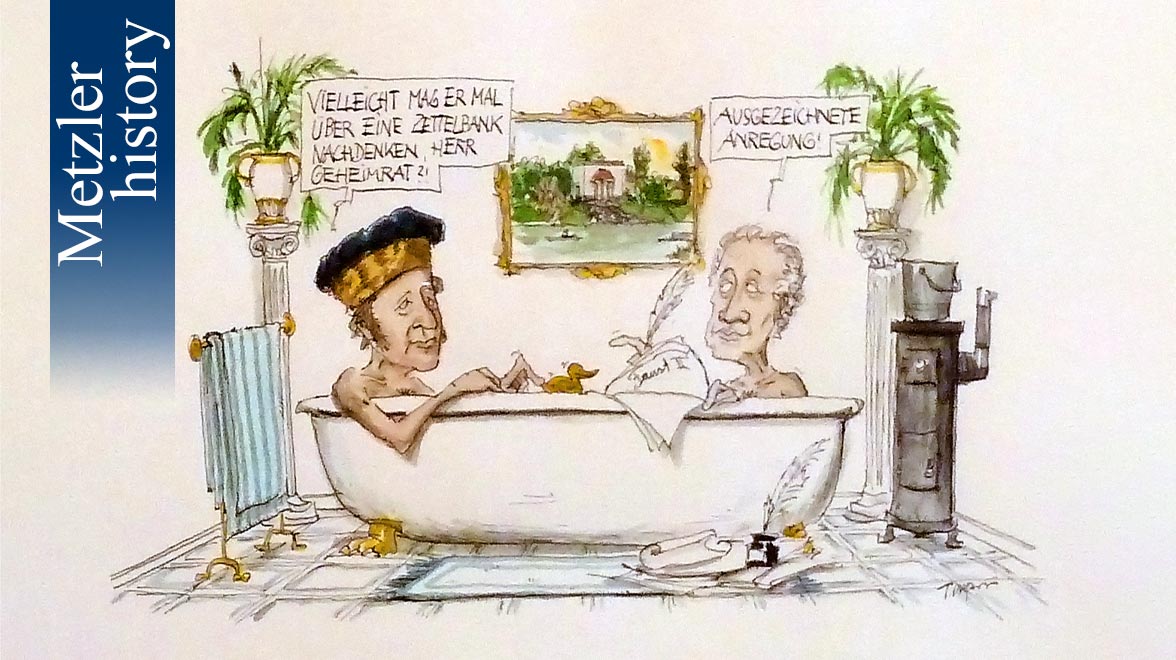The ”Zettelbank“ – Goethe and Friedrich Metzler
Goethe and Friedrich Metzler in Metzler's bathing temple in Offenbach: for Germans, this description evokes an image similar to the famous bathing scene depicted by German satirist Loriot, but it also has a real background.
In 1790, Friedrich Metzler and other Frankfurt bankers decided to establish a so-called ”Zettelbank“ – a note-issuing bank. At that time, banknotes did not exist – just a multitude of different coins because Germany’s structure was a patchwork of small states. The purpose of the Zettelbank was to simplify complicated payment transactions. However, the Napoleonic Wars got in the way of this brilliant idea, so it didn’t become reality until 1854 when the Frankfurt Bank was founded.
What does this have to do with Goethe? Goethe and Friedrich Metzler shared a lifelong friendship. The poet visited the banker in 1814/15 at his estate in Offenbach where the bathing temple was located. Even Goethe was amazingly far-sighted when it came to money. His most famous work, Faust, isn’t just a problematic love story, it’s also about money. In the first act of part two, Faust solves a country's financial problems in one fell swoop by introducing paper money.
There’s no evidence to prove that any conversation ever took place between Goethe and Metzler, but we can imagine the two financial market experts talked about the power of money and the paper money idea. And why not over a leisurely chat in the bathtub?

 Deutsch
Deutsch English
English